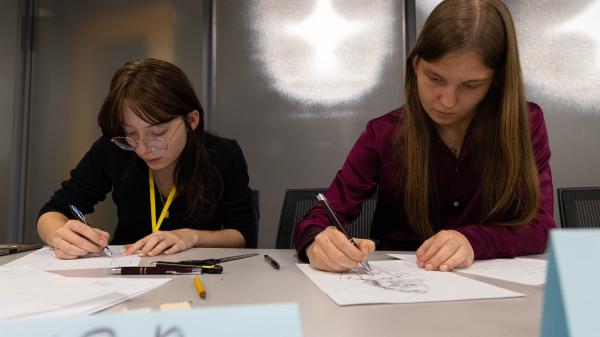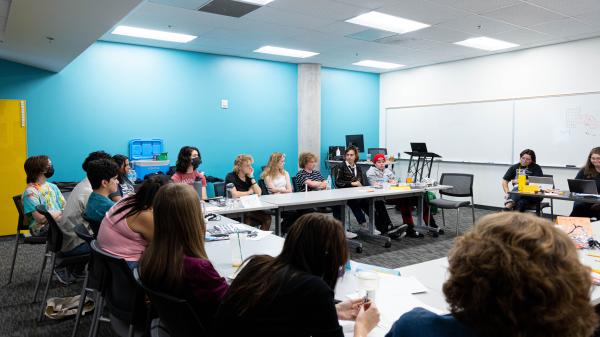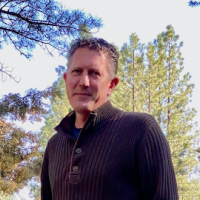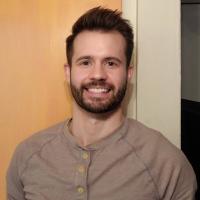Overview
2026 Topic: Building Better Communities
Our communities are in trouble. Differences of opinion (especially those having to do with politics) start fights between family members, friends, and neighbors. Political polarization is making it increasingly hard to see the good in people who aren’t on “the same side” (whatever side that is). Tackling this head on, Our focus this week will be on cultivating civic virtues - such as openmindedness, humility, and empathy — skills that we need to get through polarizing times.
Some guiding questions that we will be engaging:
- What are civic virtues? Why do we want them?
- Is it always important to be right?
- How can we avoid echo chambers?
- What values hold up our community? Our country?
- How can we develop compassion, and work with people who disagree with us?
For one week, you are a college student, working with ASU’s graduate students, to investigate these questions — coming to campus in the morning and leaving in the evening. You will get to meet a handful of ASU professors as they come in to give guest lectures. We will be drawing from Ethics, Aesthetics, Political Philosophy, and Philosophy of Wellbeing. In the meantime, you’re hanging out with your peers that want to look at life a little more carefully. You are part of an intellectual community. You’re running around campus, eating in dining halls, peeking into the life of a college student.
Co-sponsored by the Lincoln Center for Applied Ethics.

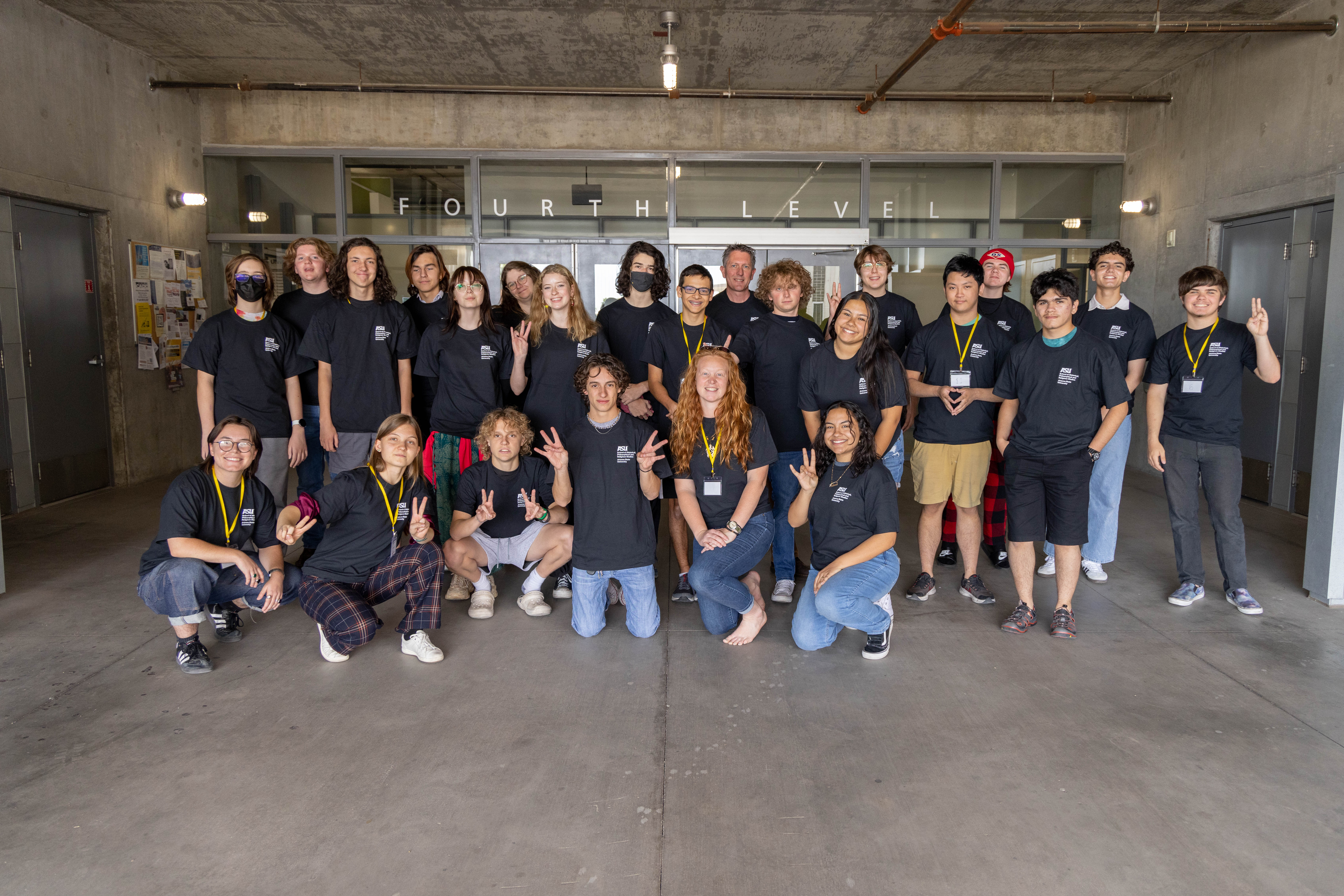
Details
Date: June 1–5, 2026
Time: 8:30 a.m.– 4 p.m.
Location: Lattie F. Coor Hall, Arizona State University (976 S Forest Mall, Tempe, AZ 85281)
Eligibility and Tuition
The Dialectic is open to any student that was in high school (9th-12th grade) during the 2025-2026 school year or is just graduating 8th grade.
Tuition for The Dialectic is $400.
Tuition covers the cost of the camp including instruction, lunches, materials and facilities.
Payment in full is due upon registration. While registering, please review the Refund/Cancellation policy on the payment confirmation page before finalizing submission.
For students with financial need, SHPRS awards a small number of need-based scholarships. Scholarships are awarded based on need and application answers. If you accept a scholarship, you are making a commitment to arrive on time and to participate fully in the camp. To request a scholarship please contact Angela Barnes Rodriguez BEFORE you fill out the registration.
Meet the instructors

Angela Barnes Rodriguez is the assistant director of the Lincoln Center for Applied Ethics at ASU and the founding director of The Dialectic, among other things. At work she spends most of her time designing student and public programs. In her spare time, she studies technology addiction, tries to get her step-sons outside and off their screens, and wishes that she was doing more woodworking.
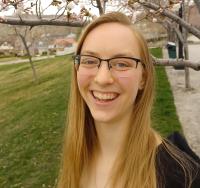
Miranda Judson is a PhD student here at ASU. She earned her bachelor's degree in interdisciplinary studies from Utah State University, studying philosophy and English with an accompanying minor in Piano Pedagogy. She loves to explore questions regarding the nature of good and evil, identity, knowledge, and has a passion for philosophy of religion. When not studying, Miranda enjoys reading fiction, traveling, and playing the piano. She is excited to get to work with more students this summer!
Dr. Thad Botham earned a PhD in philosophy at the University of Notre Dame. Thad is published in epistemology, metaphysics, and ethics. He has taught at ASU since 2006. He has taught for Barrett, the Honors College at ASU, and is currently the Faculty Honors Advisor for philosophy. Thad enjoys thinking about hard things to think about—things that cannot be resolved by empirical investigation alone, for example, the nature of free will. Thad has a penchant for high quality teaching that produces results. Fostering an environment where students feel safe, yet challenged, Thad equips students to master both evaluation and delivery of sound arguments for controversial claims. He nurtures the sense of community many consistently experience in his classrooms. For fun, Thad builds large boomerangs from a 1912 Australian design, and they really do return.
Dustin Taylor is a PhD student interested primarily in moral philosophy. He earned his BA and MA degrees from Brigham Young University and the University of Nevada, Reno, respectively. Prior to coming to ASU, he worked as an adjunct instructor at Utah Valley University teaching Ethics and Values and Introduction to Philosophy. In addition to philosophy, Dustin also loves rock n' roll music, college football, and Star Wars.
Registration coming soon
Registration deadline: May 1, 2025.
Questions? Contact Angela Barnes Rodriguez.
Past Programs
2025
2025 Topic: Everyday ethics and The Good
Everyday we have to make choices. What to eat for breakfast, whether to be grateful for our parents and teachers, and how rebellious we should be. How many of those choices concern what is good or moral? How many things that we encounter during the day – from moods to movies – matter outside of the pleasure they bring us?
Some guiding questions that we will be engaging:
- Are all choices moral?
- Is beauty valuable?
- Do stories reflect ethics?
- How should emotions affect behavior?
- What do we owe to our friends and families?
- What makes for a good life?
2024
2024 Topic: What is the nature of the self?
Who are you? Why does it matter? Are you the same self now that you were a year ago? You might have asked yourself what it means for me to be me and for you to be you. We participate in groups and communities based on shared identities, we vote for politicians that we feel a shared sense of self with, we choose life plans in various ways based on the things we believe to be true about ourselves. But what does it mean to be a self? What makes us who we are? Are those things stable, or changing? And perhaps, most importantly, what is at stake when we ask who or what we are?
Some guiding questions that we will be engaging:
- What does the self consist of? Who, or what are you?
- Are you separate from others? Are you unique?
- Do you make your own decisions?
- What does it mean to be a self among other selves?
- What benefits or harms come from focusing on the self?
- Are people inherently good or bad?
- Can the self survive change? Death?
2023
2023 Topic: Technology: Friend or Foe?
We are surrounded by all kinds of technologies: human creations that sit on top of the natural world. They make our lives pleasant, comfortable, and easy. They also capture our attention, and hold it hostage. This week, we are going to step back and ask: Are we telling technology what to do? Or is technology telling us what to do?
Some guiding questions that we will be investigating:
- How does technology affect my well-being?
- What is holding my attention?
- What are hidden influences on my actions?
- What have people convinced me that I need?
- How is technology affecting the way I view others?
- How is technology affecting the way I view myself?
2022
2022 Topic: Why don’t they get it? How to engage disagreement.
We are constantly bombarded by disagreement - with our friends, with our parents, on social media, on the news - it seems to be around every corner. Moreover, these are not inconsequential disagreements, they are about things that we care about - things that matter to us. We try to explain to people why we believe what we believe but they just don’t seem to get it. Why don’t they get it?
This year's summer camp is going to have this issue as its focus. Some of the topics we will be addressing are:
- What is good argumentation? What does good reasoning look like?
- What do values have to do with disagreement? How do we respect people’s values when we disagree? Should we respect people’s values?
- What is good evidence? What do we do when we have different evidence than someone else?
- Is my point of view uniquely accessible to me? How can I share it with others?
- What could reasonable political dialogue look like?
- How can I engage with disagreement?
Past Participant Testimonials
Why philosophy?
Philosophy is the practice of critical thinking. Looking headlong into hard problems and reasoning through them.
For those of us that search for the “WHY?” around every corner, philosophy is intrinsically appealing. We get to engage the questions and the topics that we care about the most, with other people that care about those same things.
For others, philosophy is a pathway to being a better thinker - to think and solve problems more creatively. Philosophy is a set of skills, skills that will serve you in college, in a job, and in life. Students that study philosophy in college test higher than students of all other majors on the GRE (graduate school application test) and become invaluable employees. Learning to think clearly and to communicate effectively is the most transferable skill on the market. Whether you want to be a lawyer, programmer, or business owner - philosophy can help you do it at the top of your game.
Co-sponsored by the Lincoln Center for Applied Ethics


